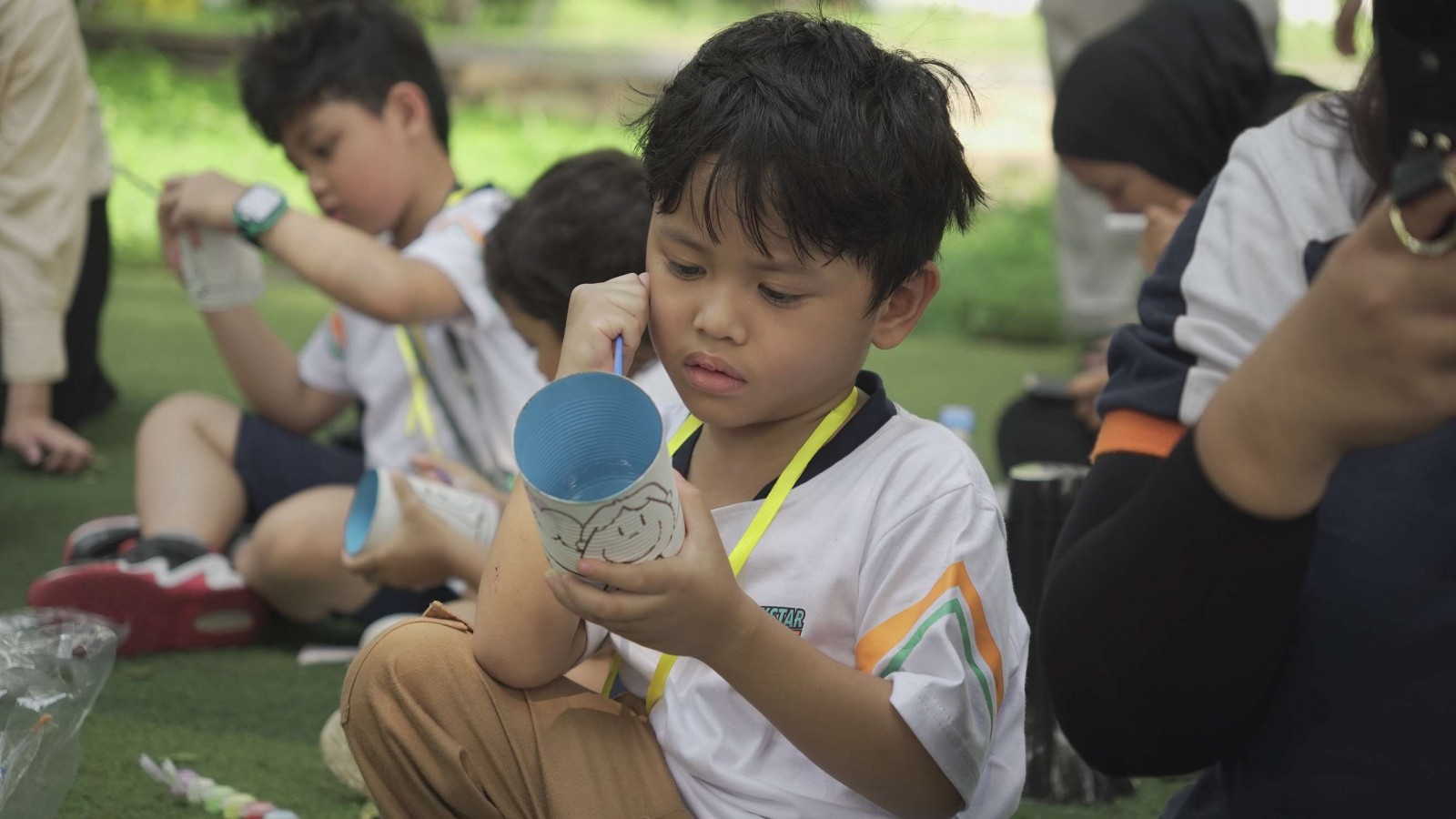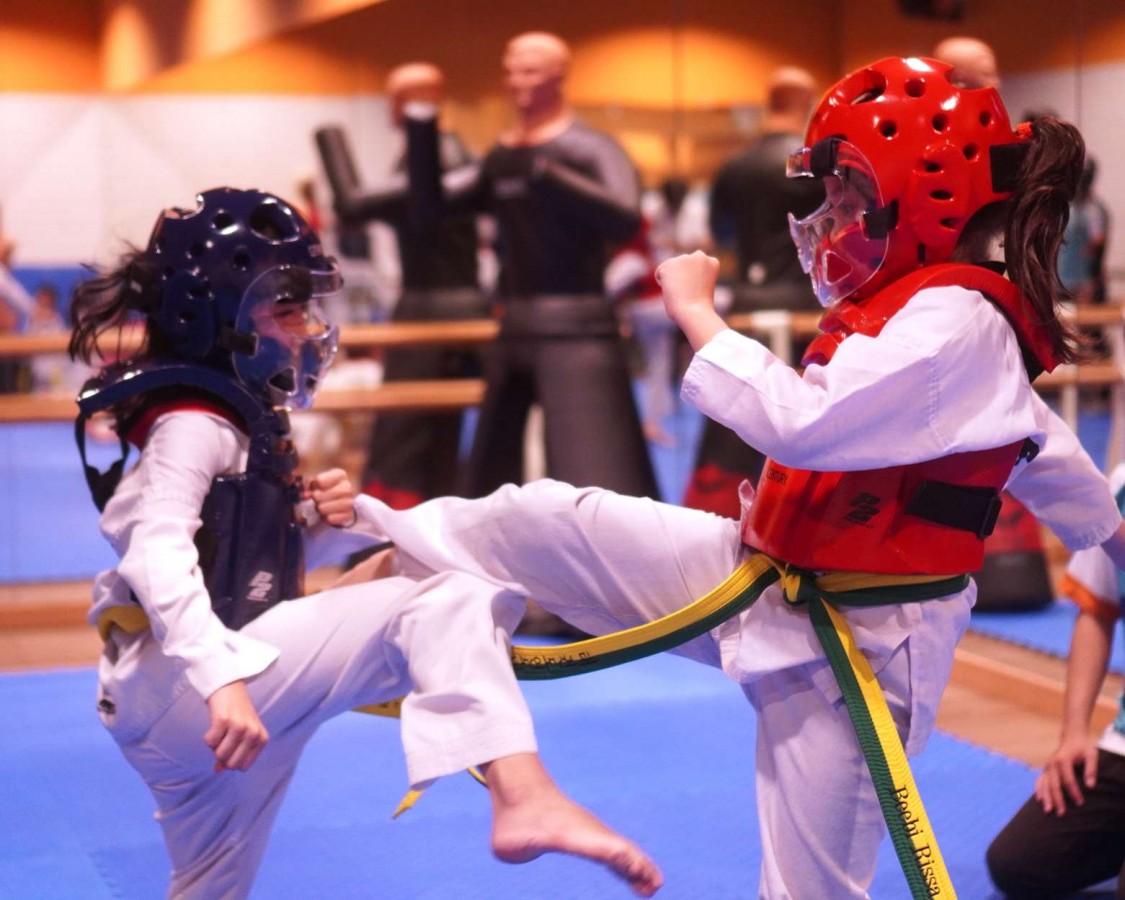Effective Strategies to Improve Kids' Focus and Task Completion

Ever wonder why your child keeps zoning out during homework or can’t sit still in class for more than five minutes? Many parents and teachers ask the same question: how to improve kids' focus so they can finish tasks and do well in school.
In a world full of distractions, it's no surprise that children often struggle to concentrate. But the good news is, focus is a skill, and like any skill, it can be developed with the right strategies.
Let’s explore why focus is so important for kids and discover fun techniques that actually work to help them stay on track. Keep reading!
Why Is Focus So Important for Kids?
Focus is the executive function ability to give full attention to a task or activity without getting distracted. It's essential for learning new things, solving problems, and finishing what we start. For children, having good focus means they can:
- Pay attention in class
- Follow instructions
- Complete assignments on time
- Retain what they learn
- Build confidence in their abilities
Without focus, even the brightest child may struggle to show their full potential. When a child constantly drifts off or gives up on tasks, they may feel frustrated, fall behind in class, or lose interest in learning altogether.
10 Effective Ways on How to Improve Kids Focus
So how can we, as parents or educators, help kids strengthen this superpower called focus? Let's break it down here.
1. Create a Distraction-Free Environment
Before we expect children to concentrate, it’s important to create the right setting for focus. A cluttered or noisy space can pull their attention away from tasks. Start by scanning their study or play area. Are there toys nearby? Is the television on in the background? Are mobile devices within reach? If so, these distractions need to go.
If your home tends to be noisy, consider giving your child noise-canceling headphones or playing soft instrumental music to minimize auditory distractions. Think of this setup as creating a “focus bubble” where your child feels safe, calm, and ready to concentrate.
2. Break Tasks into Smaller Steps
Large tasks can easily overwhelm children. When a child is faced with writing a full-page essay or completing 20 math problems, they might freeze up or procrastinate. To help them manage, break tasks into smaller, manageable chunks.
For example, instead of saying, “Finish your homework,” say, “Let’s do the first five questions together.”
Creating a checklist is also a powerful tool you can try. Kids love the satisfaction of ticking off each completed step, and it builds momentum.
Celebrate these mini-wins with praise or even a high-five: “Yay, you finished part one!” This approach helps children see that big goals are just a series of smaller steps.
3. Use Timers and Brain Breaks
Children’s attention spans are limited, and even adults can’t focus nonstop. That’s why using timers can help set a rhythm for focused work and well-earned breaks. One child-friendly technique is the “Pomodoro for Kids” method: 15–20 minutes of work followed by a 5-minute brain break.
During those breaks, let your child stretch, dance, run in place, or even play a quick game. After two or three cycles, let them have a longer break.
4. Practice Mindfulness and Deep Breathing
Mindfulness isn't just for adults but also can be applied to help kids improve their attention and emotional control. Teaching mindfulness helps children learn to be present in the moment rather than letting their minds wander.
Start with simple deep breathing exercises: inhale for 3 seconds and exhale for 5. Do it together with your child, making it a bonding experience. You can also try the “5-4-3-2-1” grounding game: ask your child to name 5 things they see, 4 they hear, 3 they feel, 2 they smell, and 1 they taste.
This brings their attention back to the present moment and reduces stress. Activities like mindful coloring or listening to calm music can also promote focus. Just five minutes a day can make a big difference in helping kids reset their minds and stay attentive during tasks.
5. Encourage Physical Activity
Children are naturally energetic and not meant to sit still for long hours. Movement helps release excess energy, reduces restlessness, and improves blood flow to the brain, which enhances focus and learning.
Start the day with light exercises. If your child struggles to sit still during homework time, let them stand while working or use a wiggle cushion. Fidget tools or balance boards can also help kids stay engaged during tasks.
Better yet, enroll them in Sports & Performing Arts Programs, such as gymnastics, martial arts, or dance. Not only do these structured activities improve physical health, but they also develop discipline, body control, and focus.
Being part of a sports and performing arts academy, like Rockstar Academy, provides consistent opportunities for kids to move their bodies, build stamina, and sharpen concentration in a fun, supportive environment.
6. Make Tasks Fun and Engaging
Boring tasks will quickly lose a child’s attention. When learning feels like a chore, the brain naturally seeks something more stimulating. But when tasks are fun and creative, kids are more likely to stay engaged.
Use colorful pens or stickers as part of note-taking or homework. Turn spelling practice into a mini game show with prizes for correct answers.
Another trick is to let them become the teacher and explain what they just learned to you or a sibling. This makes learning interactive and reinforces the information. When study time feels more like playtime, focus tends to come naturally.
7. Build a Consistent Routine
Children thrive on structure. A predictable routine helps reduce anxiety, builds good habits, and prepares the brain for what's next. When your child knows what time homework starts and when dinner or bedtime is, they are less likely to resist and more likely to transition smoothly between tasks.
Set up a daily schedule that includes time for studying, playing, eating, and sleeping. For example, after school could be snack time, followed by 30 minutes of study, then 30 minutes of play.
8. Praise Effort, Not Just Results
When children are only praised for correct answers or perfect grades, they might become afraid of making mistakes and give up when things get hard. Instead, focus on praising effort, persistence, and concentration.
Say things like, “I saw how you kept trying even when it was tricky,” or “You really focused today—great job!” This type of praise encourages a growth mindset, where kids believe that skills like focus and learning can improve with effort.
It also helps them feel proud of their process, not just the outcome. Celebrate progress with stickers, a chart, or even a special activity after a week of good focus. When kids feel their hard work is recognized, they’re more motivated to keep trying.
9. Teach Focus Like a Skill
Just like riding a bike or learning to swim, focus is a skill that can be taught and improved over time. Let kids know that it’s okay to struggle with attention.
When children realize that focus is something they can strengthen, they feel empowered to improve. This growth attitude will benefit them not just in school but in sports, arts, and every area of life.
10. Get Enough Sleep and Nutrition
Even the best strategies won’t work if a child is tired or hungry. A healthy brain needs sleep and fuel to function well. Most school-aged children need 9–11 hours of sleep per night. Make sure they have a consistent bedtime routine.
Nutrition also plays a big role. Provide snacks that fuel focus, such as fruits, yogurt, nuts, or whole grains. Avoid sugary snacks or drinks, especially before study time, as they can lead to energy crashes.
Encourage regular water intake throughout the day to stay hydrated. When kids are well-rested and well-nourished, their brains are primed for learning and focus.
Need Help?
If you’re looking for the best place to support your child’s early learning journey, consider the Preschool & Kindergarten at Rockstar Academy. Only at Rockstar Academy will your child experience a unique combination of quality early childhood education, exciting physical activities, and a wide range of events and competitions.
Through both academic and physical activity classes, children also learn important life skills like teamwork, discipline, and resilience. With the support and guidance of Rockstar Academy’s experienced teachers, kids are encouraged to be more adaptive and believe in their own abilities.
And the best part? Rockstar Academy offers a free trial class, so your child can explore and enjoy the experience before enrolling. It’s the perfect start to help your little one stay focused, have fun, and thrive!
FAQ
At what age should I start helping my child build focus?
You can start as young as preschool age! Use short activities (5–10 minutes) and gradually increase focus time as your child grows.
What if my child has ADHD or other attention challenges?
These strategies still help! But it’s best to work with a pediatrician, therapist, or learning specialist for extra guidance tailored to your child’s needs.
How can I tell if something is too hard and causing my child to lose focus?
If your child is frustrated, bored, or avoiding the task, it might be too difficult. Try simplifying it or offering more guidance before continuing.



